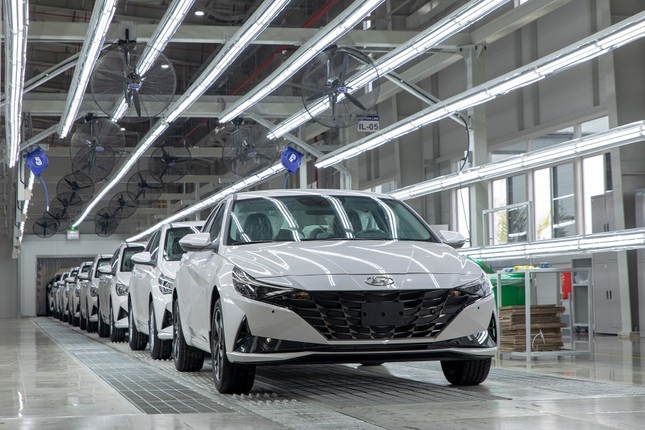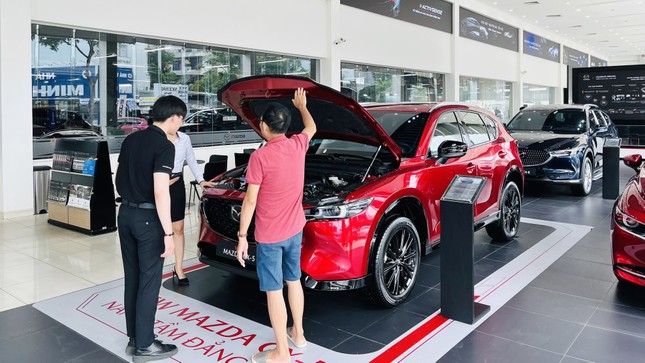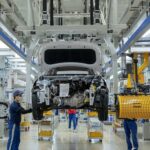The latest report from the General Statistics Office reveals that an estimated 31,300 cars rolled off domestic production and assembly lines in August, marking a remarkable 47% year-on-year growth.
August marks the third consecutive month of positive growth in domestic car production. With an estimated 31,300 cars manufactured last month, domestic car production in Vietnam has also reached its peak for the year so far.
Cumulatively, an estimated 205,900 domestically-produced cars have been completed in Vietnam since the start of the year. This represents an 8.7% increase compared to the same period last year.

Domestic car production surges ahead of the 50% reduction in registration fees.
The proactive increase in car production over the past months, peaking in August, is seen as a strategic move by car manufacturers to boost supply for the upcoming high season.
On August 30, the government issued Decree No. 109/2024/ND-CP, stipulating a 50% reduction in registration fees for domestically-produced and assembled cars, trailers, and similar vehicles. This decree will be effective for three months, starting from September 1, 2024, until November 30, 2024.
Industry experts predict that the upcoming 50% reduction in registration fees will significantly boost the market. This policy not only helps consumers save a substantial amount when purchasing a car but also presents opportunities for domestic car manufacturers and assemblers to thrive.

The policy to reduce registration fees by 50% for domestically-produced cars will stimulate consumption and boost the market in the final quarter of 2024.
According to a report from the Vietnam Automobile Manufacturers’ Association (VAMA), as of August 2024, the total car consumption of member companies reached 188,997 units, a 2% increase compared to the same period last year.
Of this total, domestically-assembled cars accounted for 94,141 units, while imported cars reached 94,856 units. Although the difference is not significant, domestic car sales have decreased by 11% year-on-year, while imported car sales have increased by 21%.
Currently, the scale tips slightly in favor of imported cars, but this could change due to the upcoming policy reducing registration fees for domestically-assembled vehicles.
Meanwhile, to compete with the reduced registration fees offered for domestically-assembled cars, imported car distributors are also slashing prices and offering attractive promotions, including support for 100% or even 150% of the registration fee.
The Domestic Auto Industry Under Threat
There are numerous reasons why imported fully-built car sales consistently outperform domestically produced and assembled vehicles.
The Domestic Auto Industry Under Threat
The imported car market is booming, and it’s outpacing the domestic automotive industry. But why are consumers increasingly opting for imported vehicles over locally-assembled cars? This intriguing trend warrants further investigation, as it could significantly impact the automotive landscape in the country.
Slash 50% Off Pre-Registration Fees for Domestically-Produced Cars for 3 Months Only
On August 15, the Government agreed to reduce the registration fee for domestically produced and assembled cars by 50%.



















